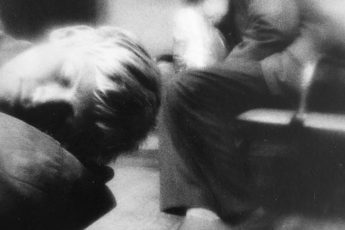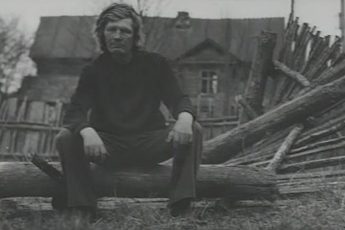Past and Present
Bojan Vuletić’s A Practical Guide to Belgrade with Singing and Crying (Prakticni vodic kroz Beograd sa pevanjem i plakanjem, 2011)
Vol. 16 (April 2012) by Moritz Pfeifer
A Practical Guide to Belgrade with Singing and Crying unites an international cast to give a facetious portrayal of contemporary Belgrade. The film is framed like a tourist guide and divided into four episodes, a prologue and an epilogue, each one introduced by a singing choir. In each episode a foreigner falls in love with someone from Belgrade, a somewhat cheesy idea, if it weren’t for the introductory choir who sells each love-story as if it were a ready made tourist attraction. In the first episode a manic depressive chanteuse from France played by Julie Gayet falls in love with a Serbian chauffeur; the second love story explores the adventures a dominatrix and an American ambassador have in a hotel, although the Ambassador, as it turns out, is actually an employee at the Embassy’s cuisine. We then follow a German-Turkish businessman who is seduced by a blonde woman with an affinity for alcohol and Serbian-Turkish history, and in the last episode a Croat played by Leon Lucev (known for his roles in Jasmila Zbanic’s films) marries a young Serb.
Most scenes manage to play off European stereotypes against each other. Stefan (Marko Janketic), the Serbian driver with the French singer, is more of an insecure teenager in the fear of loosing his job than a macho from the Balkans. He quite unmanly, wants the singer to stay after their short affair, and chases her to the airport to tell her that he loves her. Imagining one of Kusturica’s characters doing something similar seems out of the question. The French amour fou personality of the singer might seem out of proportion, but then again, french artists seem to lead more conservative lives these days. At least in comparison to their British colleagues, apparently a french singer is more likely to end up as the first lady in a right-wing government than to die of an overdose…
A Practical Guide pretends to be a film for Brussels but it is a film for Serbs. It offers a fresh alternative to contemporary Serbian films, hardly distinguishable from other European art house uniformity. Comedies about the present are hard to find between war chronicles (Ordinary People) and the fast-selling recipes on social discontent (Tilva Ros). It seems, then, that this is finally a Serbian film not made to impress an audience who someone, somehow expects to find films showing responsibility for war crimes, and solidarity for the ruins of everyday life.
This is perhaps why Vuletić’s film is so hilarious. It ultimately mocks all those films with a schizophrenic political message. The last choir’s plea to join the European Union is more than ironic. The real WE-WANT-TO-ENTER-THE-EU films are the ones whose scripts already look like they’ve been approved by imagined political correct authorities. The obvious downside of such an artistic industry is lack of independence. A Practical Guide tries to leave that behind. It doesn’t seem to care much about stereotypes, multicultural sensitivity, etc. That’s why the film is truly independent, which should be the most important criterion to join the EU.




Leave a Comment